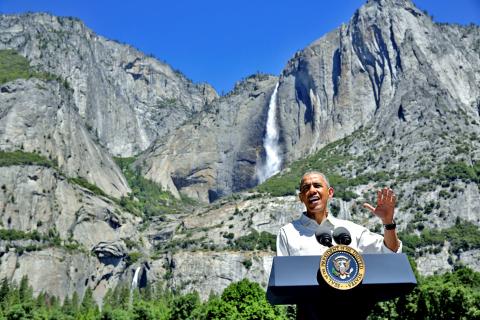Wildfires To Double In Size By 2050...
U.S. Could Burn $62 Billion a Year by 2050 Fighting Wildfires
9/17/2014
U.S. Could Burn $62 Billion a Year by 2050 Fighting Wildfires
9/17/2014
Fighting wildfires could cost the United States anywhere from $10 billion to $62.5 billion a year by 2050, according to a new report. The reason: climate change will make wildfires "more frequent and intense," possibly burning 50 percent to 100 percent more land in the United States in 2050 than they do today, according to the new report from a group of organizations including the Natural Resource Defense Council. Several U.S. states have suffered record wildfires over the last few years, including Colorado, where a blaze destroyed 500 homes near Colorado Springs in June 2013.
The damage won't be limited to the United States. Globally, wildfires could cause $50 billion to $300 billion annually in damage by 2050, according to the report. That is just the cost of fighting fires. When things like property loss, public health, air pollution and soil erosion are factored in, the figures skyrocket. Currently, the United States spends $2 billion to $2.5 billion on wildfire suppression, according to the report. When those other factors are considered, the number jumps to between $20 billion and $125 billion a year.
U.S. Could Burn 62 Billion a Year by 2050 Fighting Wildfires - NBC News


